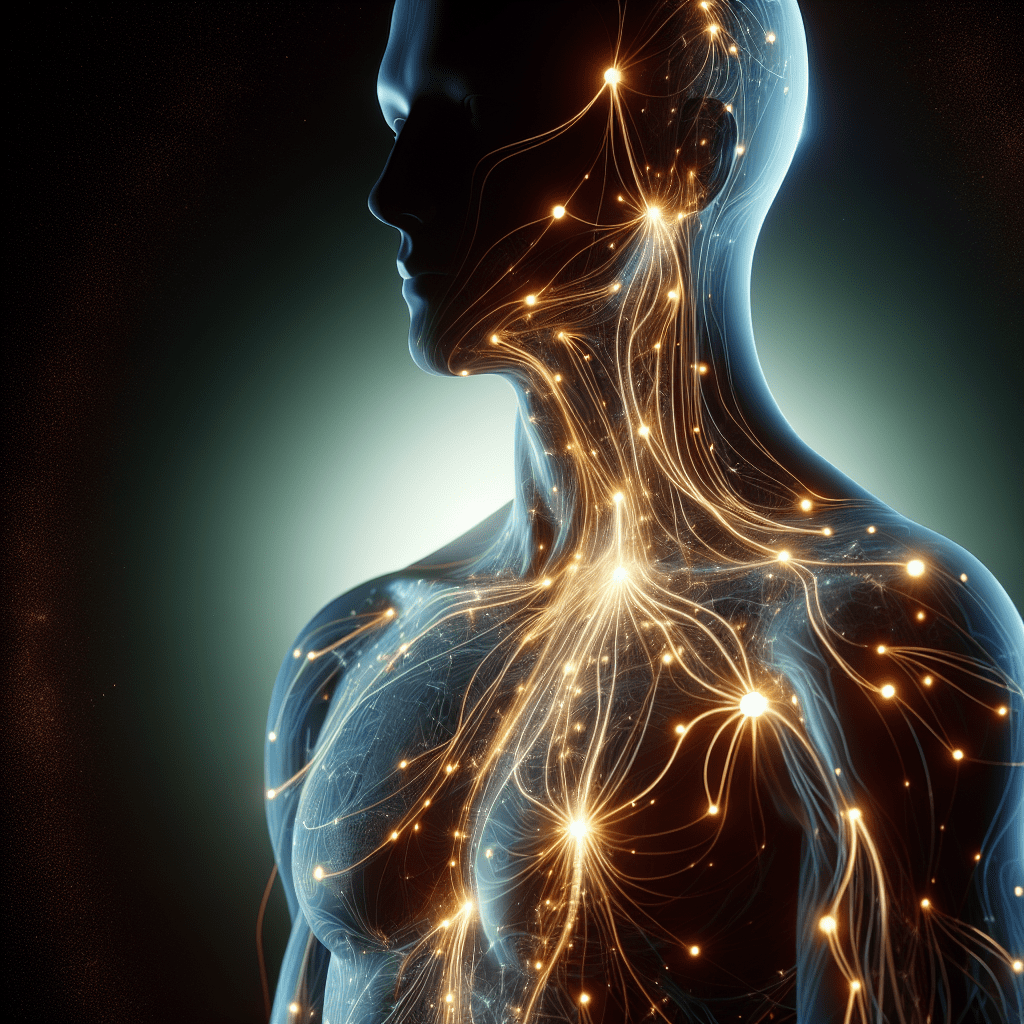Have you ever walked into a room and instantly felt either energized or drained? That’s not just your imagination at work—it’s your body responding to the flow of energy around you. In Eastern healing traditions, this energy is known as Qi (pronounced “chi”), and it flows not only through our environment but also through our bodies via pathways called meridians.
Today, we’re exploring a fascinating question: Could the arrangement of your living space be affecting your health at an energetic level? The ancient practice of Feng Shui suggests that the answer is a resounding yes!
The Hidden Connection Between Your Home and Your Health
Imagine your body as a complex network of rivers, with energy flowing continuously to nourish every cell. That’s essentially what the meridian system is—invisible channels carrying life-force energy throughout your body. When this energy flows smoothly, you experience vibrant health. When it’s blocked, physical and emotional issues can arise.
But here’s where things get really interesting: according to Eastern medicine principles, the energy flowing through your home directly influences the energy flowing through you. Just as a river can be dammed or diverted by obstacles, your body’s meridian system can be affected by the energetic quality of your surroundings.
Understanding Feng Shui and Qi: Ancient Wisdom for Modern Living
Feng Shui, literally meaning “wind and water,” is a 3,000-year-old Chinese practice focused on harmonizing individuals with their surrounding environment. At its core is the concept of Qi—the vital life force that animates everything in the universe.
“Qi is the life energy that flows through everything,” explains traditional Feng Shui wisdom. This energy needs to move freely through your space, neither stagnating nor rushing too quickly. When Qi flows optimally in your environment, it supports the flow of energy in your body’s meridian system as well.
The principles of Feng Shui recognize five elements—wood, fire, earth, metal, and water—that interact with each other to influence your surroundings. These same elements are fundamental to understanding how energy moves through your body’s meridians. For instance, the wood element corresponds to the liver and gallbladder meridians, while water relates to the kidney meridian system.
By applying Feng Shui principles to your home, you’re essentially creating an environment that supports rather than hinders your body’s natural energy patterns.
The Meridian System: Your Body’s Energy Superhighways
To understand how your home affects your health, let’s first explore how energy moves through your body.
In East Asian Medicine, there are 12 principal meridians corresponding with specific organs. These meridians come in pairs—one yang (hollow) and one yin (solid)—and each relates to an element and season. These aren’t physical structures you’d see in an anatomy textbook, but rather energetic pathways that have been mapped through thousands of years of observation and practice.
The meridian system serves as the foundation for acupuncture, acupressure, and many other healing modalities. Ancient practitioners would enter deep meditative states to visualize these energetic pathways, tracing how they connect different parts of the body and influence our health.
When meridians become blocked, the effects can manifest as:
– Emotional imbalances
– Digestive issues
– Sleep disturbances
– Chronic fatigue
– Mood swings
What’s particularly fascinating is how specific meridians relate to particular emotional states. For example, liver meridian blockages often correlate with feelings of frustration and irritability, while heart meridian imbalances might manifest as anxiety or emotional instability.
How Your Environment Affects Your Internal Energy: The Feng Shui Connection
Now, here’s where your home comes into the picture. Feng Shui teaches that your physical environment can either support or obstruct the flow of Qi. When energy flows harmoniously in your space, it helps maintain balanced energy within your body’s meridians.
Consider these environmental factors that might be blocking your body’s natural energy flow:
Clutter and Congestion
Just as a blood clot impedes circulation, clutter blocks the flow of Qi in your home. This stagnant energy can reflect in your body, particularly affecting the liver and gallbladder meridians which govern the smooth flow of Qi throughout your system.
“Most experts recommend that the first step in organizing a room according to Feng Shui principles is to get rid of clutter,” notes a leading Feng Shui consultant. “A clear space will free up energy flow and create room for new opportunities.”
Poor Furniture Placement
Sharp corners pointing toward areas where you spend significant time (like your bed or desk) create what’s called “poison arrows” in Feng Shui. These can disrupt your body’s energy field and potentially impact meridians associated with the areas of your body facing these sharp angles.
Electromagnetic Stress
Modern homes are filled with electronics that emit electromagnetic fields (EMFs). While research is ongoing, some studies suggest these fields may disrupt our body’s subtle electrical currents—the same currents that flow along meridian pathways.
Geopathic Stress
“Geopathic stress is the result of disturbed energies within the earth’s mantle,” explains one environmental health expert. These underground energy disturbances can potentially affect the energy in your home and, consequently, your meridian health.
Practical Feng Shui Tips to Support Your Meridian System Health
Ready to create a home that nurtures rather than blocks your body’s energy flow? Here are some practical Feng Shui adjustments that may help:
1. Clear the Path for Qi
Start by decluttering your home, particularly entryways, hallways, and frequently used paths. This allows Qi to flow freely throughout your space, supporting the corresponding flow through your body’s meridians.
Practical tip: Focus especially on your bedroom and the areas around your bed, as this is where you spend about a third of your life and where your body does much of its healing and regeneration.
2. Balance the Five Elements
Each element in Feng Shui corresponds to different meridians in your body:
– **Fire** (heart and small intestine): Incorporate candles or items in red tones
– **Earth** (stomach and spleen): Use ceramic items or earth tones
– **Metal** (lungs and large intestine): Include metal decor or white/metallic colors
– **Water** (kidneys and bladder): Add a small fountain or blue/black accents
3. Position Furniture for Optimal Energy Flow
Arrange furniture to allow for easy movement throughout your home. Avoid placing beds, desks, or seating areas directly in line with doors or sharp corners, as this can create energy disruptions that may affect your meridian system.
4. Bring Nature Indoors
Natural elements help balance and refresh the energy in your home. Fresh air, natural light, plants, and natural materials all contribute to a healthy flow of Qi that supports your meridian system health.
5. Address Electronic Overload
Create technology-free zones in your home, particularly in your bedroom. The electromagnetic fields from electronics may potentially interfere with your body’s subtle electrical currents that flow along meridian pathways.
The Meridian Clock: Timing Your Activities for Optimal Health
Beyond spatial arrangements, Eastern medicine offers another powerful concept: the Meridian Clock, which describes how Qi circulates through different meridians at specific times of day.
“The TCM body clock tells us when it is best to eat, sleep and exercise, among many other things,” explains a Traditional Chinese Medicine practitioner. By aligning your daily activities with this natural rhythm, you can further support your meridian system health.
Here’s a simplified version of the Meridian Clock:
– **7-9 AM: Stomach** – The best time for breakfast
– **9-11 AM: Spleen/Pancreas** – Peak digestion time
– **11 AM-1 PM: Heart** – Perfect for socializing and joy
– **1-3 PM: Small Intestine** – Continuing digestion and assimilation
– **3-5 PM: Bladder** – A good time to hydrate
– **5-7 PM: Kidneys** – Ideal for gentle activity and nourishment
– **7-9 PM: Circulation** – Time to relax and unwind
– **9-11 PM: Triple Heater** (regulates temperature) – Prepare for sleep
– **11 PM-1 AM: Gallbladder** – Should be asleep for detoxification
– **1-3 AM: Liver** – Deep sleep for major detoxification
– **3-5 AM: Lungs** – REM sleep and processing emotions
By understanding this clock, you can time activities to support rather than hinder your body’s natural energy cycles. For example, going to bed before 11 PM supports the gallbladder and liver meridians during their active detoxification periods.
Creating Harmony: Where Your Home and Body’s Energy Unite
When you apply Feng Shui principles to support your meridian system health, you’re essentially creating a synergistic relationship between your living space and your body’s energy pathways. This harmonious connection can promote:
– More restful sleep and better energy levels
- Improved mood and emotional balance
- Enhanced digestion and elimination
- Stronger immunity and resilience
- Greater mental clarity and focus
- A deeper sense of peace and wellbeing
The beauty of this approach is its holistic nature—instead of addressing symptoms in isolation, you’re supporting your entire being by creating an environment that nurtures your natural energy flow.
As Eastern wisdom teaches, health isn’t merely the absence of disease but the presence of vitality and balance. By paying attention to how energy flows both within and around you, you’re embracing a more complete vision of wellness.
The next time you walk into your home, pause and notice how it feels. Does the energy flow smoothly? Are there areas that feel stuck or heavy? These sensations might be offering valuable clues about how your living space is affecting your meridian system health.
Remember, small changes can make significant differences. You don’t need to renovate your entire home—even simple adjustments like clearing a cluttered corner or adding a plant to an empty space can help restore balance to your environment and, by extension, to your body’s energy flow.
By honoring the ancient wisdom of Feng Shui and meridian system health, you’re tapping into time-tested principles that recognize the profound connection between our surroundings and our wellbeing. In our fast-paced modern world, this mindful approach to creating harmony both within and around us might be exactly the medicine we need.


